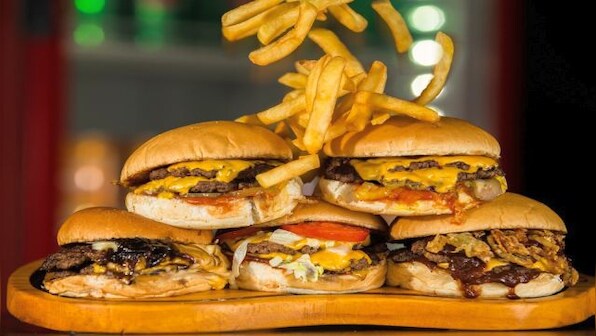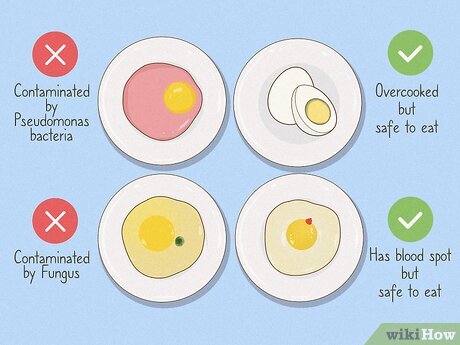Junk Food Beyond the Waistline
By: Saika J | 12 September 2025
Kashmir has always celebrated food. From morning nun chai with girda to a grand Wazwan, meals are moments of togetherness, tradition, and love. But beneath this cultural pride, a quiet dietary shift is taking place. Burgers, chips, and sugary drinks have entered homes, schools, and workplaces.
Until now, we thought junk food was mainly about obesity, cholesterol, or diabetes. But a new Neuron study by the University of North Carolina School of Medicine reveals something far more alarming: just four days of eating high-fat, processed foods can damage memory circuits in the brain—even before weight gain or diabetes show up.
For Kashmir, this is more than science. It’s a cultural wake-up call.
What Is Junk Food?
Junk food refers to food items that are high in calories but low in essential nutrients. Typically rich in saturated fats, refined sugars, excess salt, and artificial additives, these foods offer minimal nutritional value while contributing to weight gain, metabolic imbalance, and long-term health risks.
Common examples include:
- Deep-fried snacks (e.g., chips, fries)
- Sugary beverages (e.g., sodas, energy drinks)
- Processed fast foods (e.g., burgers, pizzas)
- Packaged sweets and baked goods (e.g., cookies, pastries)
While often consumed for convenience or taste, regular intake of junk food has been linked to a range of adverse outcomes—including cardiovascular disease, insulin resistance, and cognitive decline. Emerging research now suggests that even short-term exposure to such diets may impair memory formation and brain function, underscoring the urgent need for dietary awareness and public health intervention.
The Science of Junk Food and Memory
The Neuron Study: What It Revealed
Researchers found that in the hippocampus—the brain’s memory hub—special neurons called CCK interneurons became hyperactive after exposure to a high-fat diet. This hyperactivity disrupted the rhythm of memory encoding, leading to poor recall and focus.
Why the Brain Suffers Before the Body
Unlike fat storage or sugar spikes, which take weeks or months to become visible, the brain is immediately vulnerable. Neurons rely on a constant supply of glucose. When junk food floods the system with fats and reduces glucose availability, neurons misfire—creating brain fog.
CCK Interneurons: The “Memory Gatekeepers”
Think of these interneurons as traffic police for memory. They keep thoughts flowing smoothly. When they get overstimulated by poor nutrition, traffic jams appear—memories don’t form properly, focus slips, and clarity fades.
Four Days, Four Warnings: How Fast the Brain Declines
-
Day 1–2: Feeling unusually tired or sluggish.
-
Day 3: Difficulty focusing, short-term memory slips.
-
Day 4: Noticeable “brain fog”—forgetting tasks, irritability, slower thinking.
This is how quickly food choices cloud the brain.
Kashmir’s Traditional Diet: A Forgotten Shield
The Nutritional Power of Haakh, Nadru, Walnuts, Kehwa
-
Haakh (collard greens) → iron, calcium, fiber.
-
Nadur (lotus stem) → improves circulation.
-
Walnuts & almonds → omega-3s for brain sharpness.
-
Kehwa with saffron & cardamom → antioxidant-rich.
Wazwan: Celebration Food vs. Everyday Food
While Wazwan (rich with meats, oils, and rice) is a cultural treasure, it was traditionally reserved for weddings and feasts—not daily meals. Today, when heavy meals combine with junk food snacking, the brain is under double strain.
Seasonal Eating: Why It Protected Generations
Traditional diets followed the seasons:
-
Winter: meat for warmth, dried vegetables, walnuts.
-
Summer: fresh greens, fruits, cooling drinks.
This natural rhythm kept balance in nutrition and brain health.
The New Food Landscape in Kashmir
-
Breakfasts shifting from nun chai & girda → bread with butter or packaged biscuits.
-
Lunchboxes replacing dried fruits with chips and chocolate.
-
Evenings filled with pizzas, fried chicken, or roadside pakoras.
-
Schools & coaching centers selling colas and instant noodles.
This change is shaping a generation more vulnerable to memory issues.
Cultural Angle: Food as Love, Food as Risk
In Kashmiri families, refusing food is considered disrespectful. But overfeeding with heavy or processed foods is often mistaken as love. Today, even emotional feeding—offering chips, sweets, and sodas to cheer up children—is harming brain development.
Brain Fog: Everyday Signs Kashmiris Shouldn’t Ignore
-
Students forgetting lessons despite hours of study.
-
Professionals unable to focus at work.
-
Irritability, dull moods, constant tiredness.
Often blamed on “stress” or “mobile addiction,” this may actually begin at the dining table.
Voices from the Valley
-
Dr. A. Bashir (Neurologist, Srinagar): “We are seeing more young patients with headaches, sleep issues, and memory lapses. Diet is an overlooked cause.”
-
Nutritionist Hina Shafi: “Our traditional diet is naturally brain-friendly. Sadly, walnuts are being replaced with wafers.”
-
Teacher in Baramulla: “Children who used to bring dried fruits now carry colas and chips. Concentration levels are visibly falling.”
Restoring Balance: Science Meets Kashmiri Wisdom
Brain-Healthy Food Substitutes
-
Chips → roasted makai or channa.
-
Cola → saffron Kehwa.
-
Chocolates → dried apricots.
Traditional Recipes That Heal
-
Dooth Kehwa (milk Kehwa with saffron & almonds) → memory booster.
-
Walnut chutney (Akhrot chutney) → omega-3 source.
-
Light haakh with rice → iron and detox.
Exercise & Lifestyle for Brain Clarity
-
Short walks along Dal Lake or orchards.
-
Pranayama and Sufi breathing practices.
-
Evening digital detox with family tea time.
Myth vs Fact: Kashmiri Food Beliefs Tested by Science
-
Myth: “More ghee makes children stronger.”
Fact: Too much ghee can clog arteries and dull brain function. -
Myth: “Soft drinks quench thirst.”
Fact: They dehydrate the brain. Water and Kehwa hydrate better.
Family Guide: Protecting Children’s Brains
-
Pack walnuts & fruits instead of packaged snacks.
-
Create a weekly “traditional dish day.”
-
Involve children in cooking haakh or nadru—it builds connection.
Policy & Community Solutions
-
Schools banning packaged junk food.
-
Encouraging orchards & haakh farming as food security.
-
Local cafes modernizing traditional snacks (like walnut brownies with less sugar).
Quick Tip Box: Kashmir-Specific Brain Diet
-
Daily: walnuts, apples, greens.
-
Weekly: saffron milk, rajma, nadru.
-
Monthly (moderate): Wazwan delicacies.
Bottomline – Protecting Memory is Protecting Heritage
The Neuron study makes one thing clear: the brain feels food faster than the body does.
For Kashmir, protecting diet means protecting culture, clarity, and creativity. In a region where memory—of poetry, heritage, and struggle—is everything, we cannot let junk food cloud the next generation’s minds.
🥗 Our food is not just our fuel. It is our future.




